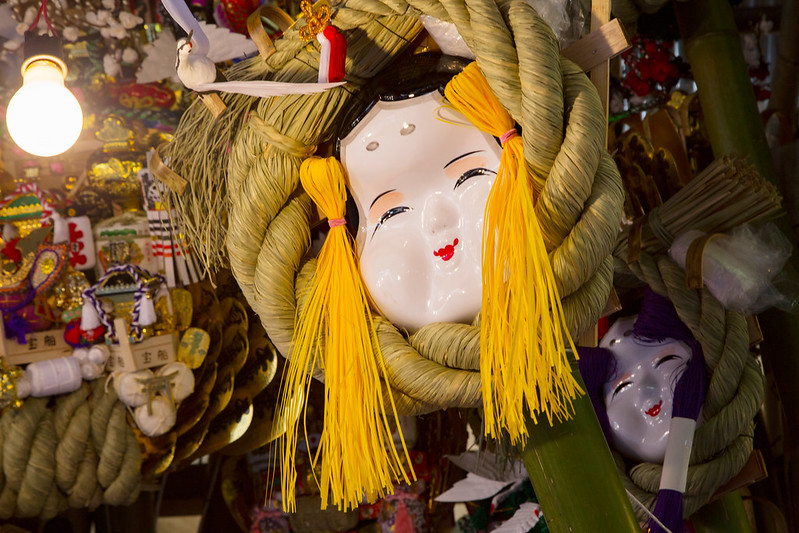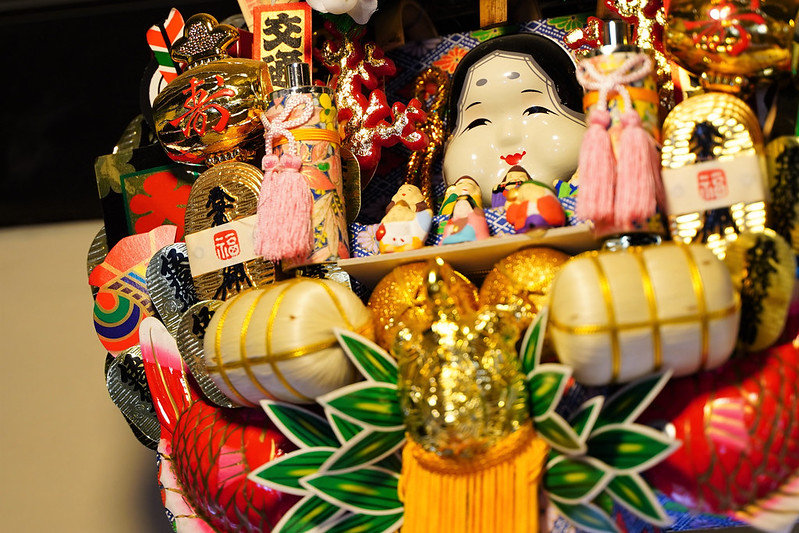
Good Fortune Awaits You at Tori-no-Ichi
Tori-no-Ichi (Good Luck Rake Fair) is held at various shrines around Japan every November. The most popular site is the Temple of Tori (Juzaisan Chokoku-ji) in Asakusa, Tokyo.
During Tori-no-Ichi, bamboo rakes (kumade) decorated with good luck charms are sold at many stalls in shrines in hopes that they will attract good fortune to businesses. The days of the Tori, or Rooster, in November vary each year. This 2012, the fair will be on November 8 and November 20.
The Tori-no-Ichi open air market is a much anticipated event that can be traced back all the way to the Edo period. It is considered to be the first fair to usher in the New Year. The famous poet Matsuo Bashō (1644 –1694) was quoted saying “Haruwomatsu Kotonohajimeya Tori no Ichi” (Tori no Ichi is a first important event to bring New Year). Aside from praying for good fortune in their businesses, many Japanese also pray for good health and wealth.
The Day of the Rooster (Tori) occurs every 12 days in November. The first day of the Tori is considered more important than the others. November can bring in two and rarely three Tori days, depending on the year. According to superstitious belief, the year that has a third Tori day will bring fire.
History recounts that the Tori-no-Ichi Fair first started in the suburb of Edo called Hanamatamura, now known as Otori Shrine in Adachi-ku, Tokyo. Tori-no-Ichi was initially a harvest festival to give thanks to Hanamata Washidaimyojin, the god of Otori Shrine in Hanamata. On the day of the festival, the people who were under the protection of Ujiko, the local deity, offered a rooster to Hanamata Washidaimyojin.
Then they went to the Senso-ji temple in Azakusa, where they released a group of roosters in front of the temple.
Don’t miss out on the revelry of Tori-no-Ichi: be sure to pray for good fortune, health, and a prosperous business.
Read more about various Japanese festivals in our portal site, KCP Student Life.

